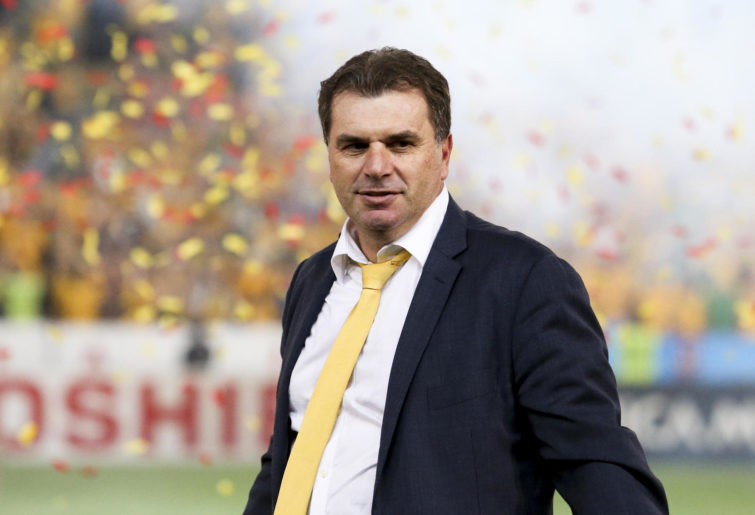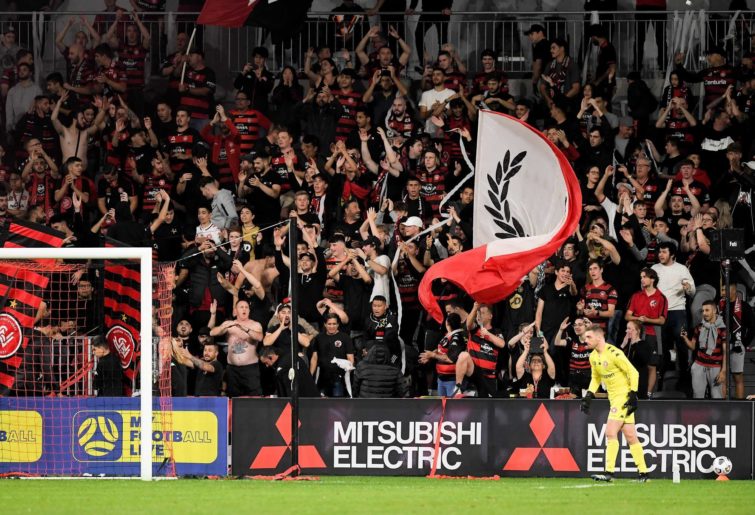tass_dimma
new author
Roar Rookie
Opinion
Upon initial inspection, the reaction to the thought of Ange Postecoglou potentially coaching Celtic has been nothing short of hilarious to watch from the other side of the world.
I’ve never seen a manager receive such universal disapproval from a fan-base who knows nothing about them. However, maybe that’s the issue in itself: the fact that Postecoglou, as well credentialled as he is, is a relative nobody outside Australian and Japanese football.
After two domestic titles with South Melbourne, two domestic titles with Brisbane Roar (which includes a 36-game unbeaten streak), an Asian Cup and a J-League title with Yokohama F. Marinos, Postecoglou is more than qualified to move onto a big-name club in Europe.
The fact remains, however, that for all his successes, he is still not known in European circles. People with little knowledge of the round ball may ask why that is the case. The answer is Australia is not respected as a footballing nation by those around the world. Hence, there is no reason for anyone in Europe to think of Postecoglou as someone who could revolutionise their football club.

(Photo by Ryan Pierse/Getty Images)
From its inception in Australia, football has never been respected or accepted by Australians. Football in Australia has always been considered a second-rate sport. As difficult as this made it for the game to continue to grow, it cannot be compared to the impact the football higher-ups have had on stunting the game’s growth in Australia.
So how can we expect Australian football to be respected overseas, when we can’t even respect the game ourselves?
Poor decision after poor decision by the governing bodies have rendered Australian football a shambles and a minnow in modern-day society, which is exactly where Australians want it to be. Despite having the largest junior community in the country, Football Australia has continually failed to rally for government funding to help grow the game.
This would not have needed to be the case had the A-League been able to generate enough revenue help support the game itself, but since the 2014-15 campaign, the A-League has gone backwards. The creation of the A-League in itself was a decision that was set to doom the progress of Australian football from the start.
The nature of Australia being such a multicultural nation is well represented through football. This was only cemented by the Optus Sport series created by John Didulica, Football Belongs, which explores how 14 different nationalities have impacted football in Australia.
Football at its heart is the world game, played by anyone and everyone. It has united and divided, brought joy and tears, created and destroyed communities. When the governing body thought it was a good idea to create a league with new clubs and no ethnic ties, it effectively killed the fabric of the game in Australia, the ‘world’ element.
Football is nothing without its fans. When you disrespect the fans, you disrespect the game. What the governing body did in 2004 when they shut down the NSL and replaced it with the A-League was disrespect the whole generation of fans that built the game in Australia.
South Melbourne Hellas, Melbourne Croatia, Heidelberg Alexander, Marconi Stallions, Sydney United, Sydney Olympic, APIA Leichhardt, Sydney Hakoah, Adelaide City, West Adelaide Hellas, I could go on forever. The one thing all these clubs have in common is one thing the A-League will never have: they were not just sporting clubs.
When the NSL was disbanded, the governing body disbanded with it every community that football clubs had established. Go to an A-League game, can you honestly say the passion in the stands is real? I’d argue it’s manufactured, just like the clubs, and those who claim to be passionate probably could not tell you why they are passionate.

(Photo by Speed Media/Icon Sportswire via Getty Images)
I attended Melbourne Victory games religiously for period of about five years in my late teens. I travelled to Sydney and Newcastle for grand finals. I thought I was passionate. I always wondered why my dad could never get invested in the A-League. Then I started being involved in the NPL.
I was attending NPL and NPL2 games on a weekly basis. I was involved in the games. I won’t say how, but I wasn’t a spectator. Having met the people involved at these clubs, you can see the love for their club is unrivalled. Then I understood why dad never liked the A-League. It was because it was a representation of a part of his life that was dismantled in front of his eyes.
He is part of a generation of fans that was disrespected. These clubs built communities, and created friendships, relationships and marriages. And when I go to the NPL, sit and the stands and listen to 80-year-old Greek men chant “A-A-Alexandros” or “Hellas Ole, Hellas Ole” in groups of no more than ten or 20, I can hear the years of emotional investment these people have put into their clubs.
What I can also hear is the disappointment that these clubs are no longer representing Australian football.
It is these clubs that produced the golden generation. Mark Viduka started at Melbourne Croatia, Mark Bresciano started at Bulleen, John Aloisi and the Vidmars started at Adelaide City, Tony Popovic and Ned Zelic started at Sydney Croatia, Mark Schwarzer started at Marconi, Kevin Muscat started at Sunshine George Cross.
Postecoglou started his coaching career at South Melbourne. Even Christian Vieri, who played 49 games for Italy, started at Marconi.

(Etsuo Hara/Getty Images)
These clubs built themselves and survived off their own boot. They produced their own talent, each played their own style of football, and managed to attract some of football’s biggest names. Ferenc Puskas coached South Melbourne. Let that sink in. A man who has a FIFA award named after him came to Australia to coach what is now an NPL club, by no fault of their own.
Terry Venables coached the national team during the peak of the NSL in the ’90s. The NSL was known and respected overseas, and had an Australian coach like Postecoglou been around in the ’90s, European fans would have no hesitation giving him a chance, rather than throwing the baby out with the bathwater like the Scots have done.
As hilarious as the fan reaction to Postecoglou coaching Celtic has been, it is justified. Not in the sense that Postecoglou is not a great coach – he is – and given the chance at Celtic, he could turn the club around, like he would’ve the national team.
The reaction overall is a microcosm for Australian football, a game that is not respected by its own nation, its overseas counterparts but most importantly, the people that are charged with running it.